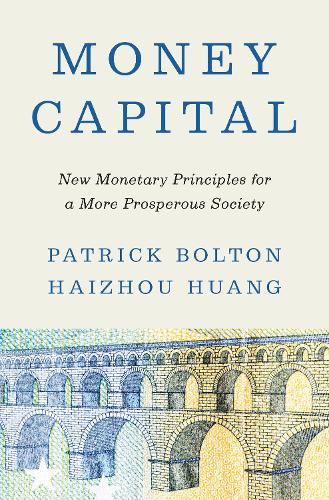
Money Capital: New Monetary Principles for a More Prosperous Society
(Hardback)
Publishing Details
Money Capital: New Monetary Principles for a More Prosperous Society
By (Author) Patrick Bolton
By (author) Haizhou Huang
Princeton University Press
Princeton University Press
1st October 2024
United States
Classifications
General
Non Fiction
Macroeconomics
International economics
Economic history
332.41
Physical Properties
Hardback
312
Width 156mm, Height 235mm
Description
A novel perspective on monetary and fiscal policy that views money as the equity capital of a nation
A conventional economic theory, monetarism, holds that inflation is a monetary phenomenon driven by changes in the supply of money. Yet recent experienceincluding the aftermath of the financial crisis of 2008 and the economic development of Chinacontradict this basic prediction. In this book, leading economists Patrick Bolton and Haizhou Huang offer a novel perspective, viewing monetary economics through the lens of corporate finance. They propose a richer theory, where money can be seen as the equity capital of a nation, playing a similar role as stocks for a company. This innovative framework integrates the real and monetary sides of the economy, with a banking sector and debt at its core.
In the financial world, companies only issue new shares if it results in some kind of value creation; this is a basic principle of corporate finance that Bolton and Huang argue can be applied to monetary economics. When the government increases the money supply to finance positive net value investmentswhen it prints money to keep the economy goingit increases output, not inflation. This is evidenced by the strong growth in GDP and money in China over the last four decades, and in the United States during World War II. The effect of increasing money supply, they argue, depends on how money enters the system and what the money buys. The principles outlined by Bolton and Huang shed new light on a range of issues, including inflation, monetary and fiscal policy, central banking, money and growth, and the international monetary system.
Author Bio
Patrick Bolton is professor of finance at Imperial College London and senior advisor to the Lazard Climate Center. Past president of the American Finance Association and a fellow of the Econometric Society, he is the coauthor of Contract Theory and The Green Swan: Central Banking and Financial Stability in the Age of Climate Change. Haizhou Huang is Special-Term Professor of Finance at both the Shanghai Advanced Institute of Finance at Shanghai Jiaotong University and the PBoC School of Finance at Tsinghua University. He is the author of The Global Financial System: Crises and Reforms and the coeditor of The Changing Fortunes of Central Banking.
